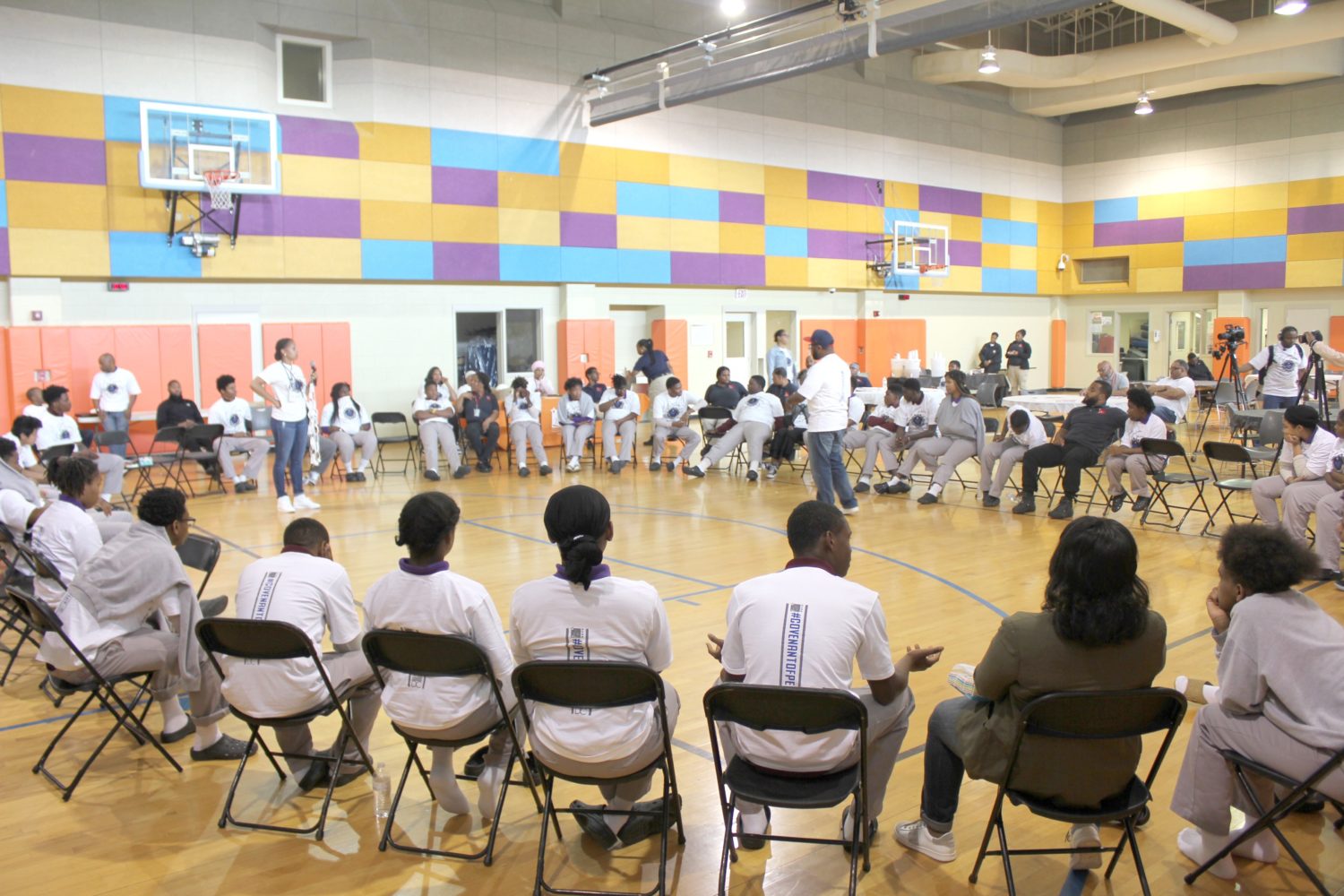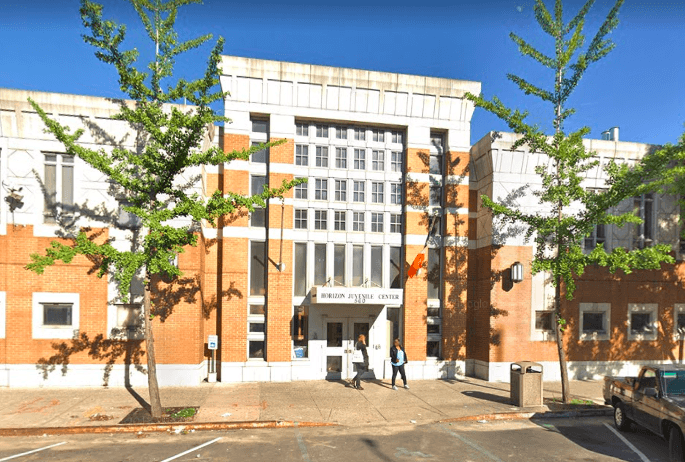Moving Teens Off Rikers Island Was a Good First Step. Now Comes the Hard Part.
The rocky implementation of New York’s Raise the Age law shows that young people in detention need love, not force.

At midnight on Oct. 1, 2018, New York’s Raise the Age law went into effect, ending the state’s practice of automatically charging young people as adults at age 16. It also required New York City to move all 16- and 17-year-olds out of the infamously brutal Rikers Island jail complex and into the Horizon juvenile detention center in the Bronx.
Mayor Bill de Blasio heralded the move as a significant victory. “Beginning today,” he said, “no one under 18 will go to Rikers Island. Kids will be treated like kids instead of adults.”
Yet from the start, that mission was subverted. When fights broke out the very first week among detainees, injuring correction officers, their union was adamant that they could only restore order by using the same level of force they were authorized to use at Rikers. Surveillance video of brawling adolescents was released to the media, and correction officers told reporters they feared for their lives. On Oct. 10, the state granted a waiver allowing guards to use OC pepper spray on youth. (That plan has since been delayed while city and state officials negotiate its use, which is prohibited in juvenile facilities.)
Raise the Age was intended to shield children from the horrors of the adult criminal justice system. Yet, New York’s implementation of the plan seems to have merely transported the culture of violence from Rikers Island to Horizon.
There are reasons for that. The law mandated that young people be removed from Rikers, but authorized the same agency—the city’s Department of Correction—to help run the adolescent detention centers where they were moved, alongside program staff from the Administration for Children’s Services (ACS). And because ACS could not hire enough “youth development specialists” by the Oct. 1 deadline, correction officers—whose horrific abuse of teenagers brought a federal lawsuit and consent decree to Rikers—are still guarding them in juvenile detention.
These correction officers and their union have painted the teens as dangerous, violent, and predatory criminals who can only be controlled by force. But the city itself seems to have bought into the logic that the adolescents from Rikers would bring with them a culture of violence too intense for ACS alone to handle.
To prepare for their arrival, the city relocated youth charged as juvenile delinquents to its Crossroads facility in Brooklyn, fearing the adolescents from Rikers would victimize them. It renovated Horizon to make it even more secure: reinforced cells, a larger control room, an arsenal of riot control gear, and plexiglass barriers in the cafeteria to keep youth from having contact with kitchen staff. New York City achieved getting the youth off Rikers, but in the process it has “Rikerized” Horizon.

These changes reflect a lack of faith in New York’s young people and the city’s ability to serve them. Teens are remarkably adept at living up to exactly what we expect of them. If we create an environment that anticipates violence, they will behave as expected. But research shows that if we treat them with love and respect, then young people—even the most traumatized, difficult, and challenging among them—will respond in kind.
I know that from my own experience running a mentoring program for court-involved youth in the South Bronx. But I’ve also seen a different approach to the same challenge playing out in the nation’s capital.
On the same day that New York’s Raise the Age law went into effect, the District of Columbia hit a deadline for removing youth charged as adults from the D.C. Correctional Treatment Facility. Prior to the transfer, they had been subject to the same conditions as the youth on Rikers. Correction officers were authorized to use brute force, OC pepper spray, mechanical restraints, and 23-hour lockdown as tools of control.
At the New Beginnings facility run by the Department of Youth Rehabilitation Services (DYRS), they were met by youth development specialists instead of corrections officers. These adolescents look no different than the youth coming from Rikers. They are also 16- and 17-year-olds and have been charged with serious and violent felony offenses. But since they arrived at New Beginnings, there have been no outbreaks of violence, no physical restraints, and no need for pepper spray. They sleep in their own housing unit, but are otherwise fully integrated with their peers during school, meals, and recreational time. I asked one of the staff members if the youth they call “Title 16” (after the statute that lets them be charged as adults) were different from their delinquency cases. “Nah,” he said, “they’re all just kids.”
That vision comes from the top. DYRS director Clinton Lacey encourages his staff to minimize the harm of detention by treating youth in custody as they would their own children. Every day he asks them to consider the question: “What does love look like in the juvenile justice system?”
DYRS also brings in trusted community members to work alongside staff members. These “Credible Messengers,” many of whom are formerly incarcerated, are in the facilities around the clock to counsel youth, resolve conflicts, and prepare them for re-entry. Every few months, dozens of Credible Messengers join youth and staff for a weekend retreat called the Covenant of Peace. They sit together in peacemaking circles, building a culture of restorative and transformative justice.
Community Connections for Youth, the organization I founded to keep youth out of the justice system, hopes to do the same at Horizon. In the weeks ahead, we will be going into the detention center to meet with youth, facilitate family engagement, and promote peace, healing and understanding among young people, ACS staff, and even correction officers. I believe a transformation of the culture there is possible. But for it to happen, we must reject fear, embrace love, and truly treat children as children.
Rev. Rubén Austria is the founder and executive director of Community Connections for Youth.
